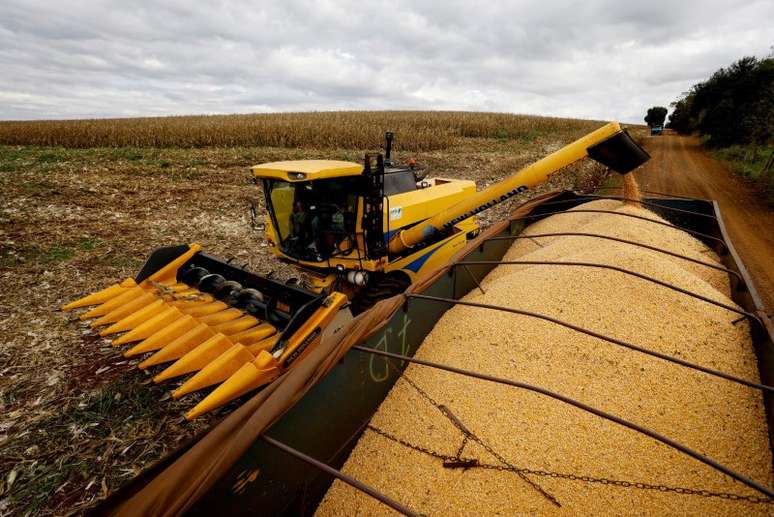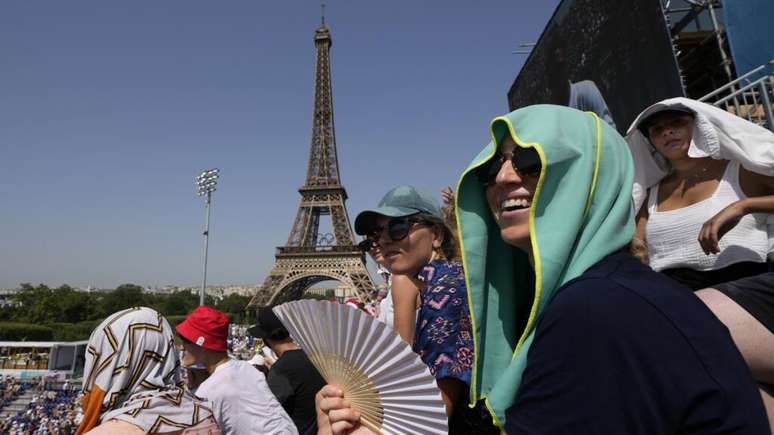The Brazilian government wants foreign investment to finance the rehabilitation and planting of degraded areas for low-carbon agriculture, and has already attracted the interest of Chinese agricultural commodity trader Cofco International.
According to the special adviser of the Ministry of Agriculture and Livestock Carlos Ernesto Augustin, the proposal for the company to participate, through a private partnership, in financing the recovery of degraded land was presented during the two-week trip to China by Minister Carlos Fávaro ago., and next month a COFCO mission should come to Brasilia to start negotiations.
“They have every interest. It would be the possibility of multiplying grain production and guaranteeing their exports,” Augustin told Reuters.
The model of this operation – which would apply not only to Cofco, but to all foreign companies interested in helping to finance the recovery of the land – has yet to be designed.
“It could be an operation through the BNDES (National Bank for Economic and Social Development), it could be a direct contract with the producers, which is still to be discussed,” Augustin explained.
One of the possibilities is, for example, the guarantee of the direct sale of what will be produced on degraded land for companies that finance the recovery, which can directly affect the Chinese. In 2022, Brazil was responsible for 22% of all that China imported, mostly in the raw materials sector.
The model of how these partnerships will work, as well as the demands that will be made on producers, are under discussion between the ministries of agriculture and the environment, which are also taking part in the discussion. The BNDES should also enter the debate, which could propose to raise funds to be subsequently transferred to the producers.
One of the first steps is to define where these degraded areas are located and which of them can enter a recovery program with the sowing of wheat.
According to Augustin, a study was commissioned from Embrapa so that the survey would show areas on three levels, from pure and simple degradation to where grazing is used, but which can also become crops.
“I need to know where they are, what the topography is, the soil type, the rainfall regime… not all areas are going to be suitable for planting or economically viable,” he said.
In addition, there is another problem: deforested lands in the Amazon regions, for example, even if they have been legally deforested or have been legalised, should not be allowed.
“I can’t plant soybeans in the Amazon,” Augustin said.
The intention, at least initially, would be to focus the program in the Midwest, where wheat planting is strong and organized, and also where deforestation in the Cerrado has grown alarmingly and has begun to attract attention worldwide. abroad.
In 2022, deforestation in the biome amounted to 10,689 square kilometers, just a thousand less than in the Amazon, according to data from Prodes Cerrado, with an increase of 25% compared to the previous year.
Less protected than in the Amazon — where properties must maintain 80% of the native vegetation, while in the Cerrado regions the environmental reserve areas are 20% –, the biome has lost 33,444 km2 since 2019. Most, due to the expansion of border agriculture in the so-called Matopiba (Maranhão, Tocantins, Piauí and Bahia).
“You don’t need to clear another hectare to increase production,” Augustin guarantees.
Another study commissioned by the Ministry of Agriculture concerns the costs of recovering these areas and starting production. The commissioner does the math himself and calculates the cost per hectare between 15,000 and 23,000 reais, depending on whether it includes only the recovery of the soil and the financing, or also the machinery.
With the intention of recovering an average of 2 million hectares per year, this cost could range from 30 billion to 46 billion reais per year, much more than the government has to invest. Hence the bet on foreign investors.
In addition to food producers, the government is also targeting Europeans, with agreements on the international carbon market, who could pay to offset emissions in their countries.
Source: Terra
Rose James is a Gossipify movie and series reviewer known for her in-depth analysis and unique perspective on the latest releases. With a background in film studies, she provides engaging and informative reviews, and keeps readers up to date with industry trends and emerging talents.


![Everything starts here: What awaits you on Thursday, July 17, 2025 in the episode of 1221 [SPOILERS] Everything starts here: What awaits you on Thursday, July 17, 2025 in the episode of 1221 [SPOILERS]](https://fr.web.img3.acsta.net/img/d2/ea/d2ea04414756eebab5b843dd8b3686f5.jpg)





